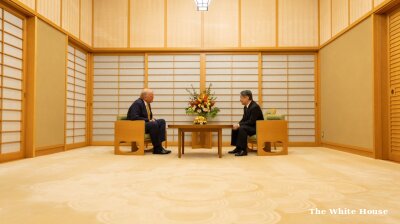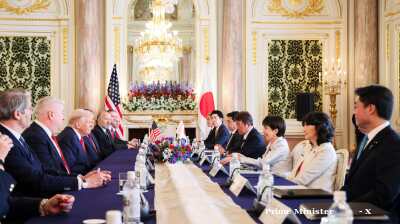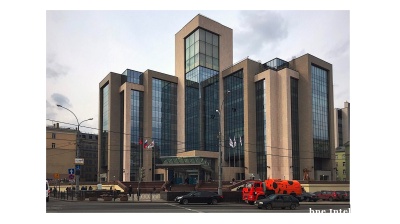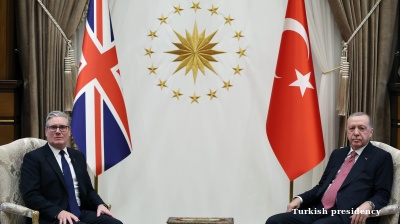US President Donald Trump and Mexican President Claudia Sheinbaum have agreed to extend a critical trade deadline by several weeks, granting negotiators additional time to resolve 54 outstanding commercial barriers between the nations.
Sheinbaum disclosed the arrangement on October 27, following a weekend telephone conversation with Trump that forestalled a scheduled October 31 expiration of tariff relief measures. The US had agreed in July to suspend for 90 days a planned tariff escalation on select Mexican goods from 25% to 30%.
"I was interested in making sure that November 1 didn't arrive without us having communicated and that we were in agreement that our teams were still working," Sheinbaum stated during her morning press conference. "We're practically closing this issue."
Currency markets responded positively, with Mexico's peso appreciating 0.29% to 18.38 per dollar following Sheinbaum's announcement.
The extension arrives after eight months of commercial friction that has injected considerable uncertainty into Mexico's economic outlook. Despite being the United States' primary trading partner, Mexico has not escaped Trump's global protectionist campaign.
Though anchored to the free trade agreement (T-MEC), Trump has slapped 25% levies on all products excluded from the treaty, 25% levies on automobiles, and 50% duties on steel, aluminium and copper.
The tariff confrontation started off nearly at the outset of Trump's second administration in January, when the Republican president announced a barrage of fresh tariffs for Mexico and Canada. March saw the first implementations under claims that Mexico was insufficiently controlling irregular migration flows and fentanyl trafficking towards the United States.
The bilateral dynamic has featured the two leaders engaging through a succession of US-imposed deadlines, regularly conducting telephone negotiations to defuse tensions. Despite Trump's mercurial approach, Sheinbaum has remarkably maintained composure, marshalling evidence to constrain the US tariff drive. Trump, for his part, has praised Mexico's inaugural female president, acknowledging he has moderated his approach with Mexico compared to other nations.
"The complexities of an agreement with Mexico are somewhat different to those of other countries due to the problems and the advantages of the border," Trump acknowledged in July when granting the previous extension.
The USMCA free trade agreement with the US and Canada, negotiated during the first Trump administration and up for review next year, has shielded Mexico from harsher tariff measures.
Earlier in October, Sheinbaum had expressed confidence Mexico would secure favourable commercial terms with Washington whilst preparing to announce advances in electric vehicle, semiconductor, satellite, drone and artificial intelligence laboratory projects.
"We continue working, and there is no situation in the near future where there could be any special tariff on November 1," Sheinbaum stated.
Trump announced last week he was terminating trade talks with Canada, expressing frustration over negotiation progress. Canada maintains its own tariff conditions for goods excluded from T-MEC since March, mostly with fewer advantages than those enjoyed by Mexico. Despite Canadian Prime Minister Mark Carney pursuing conciliation with Washington, Trump's response has been categorical.
Faced with that rupture, Sheinbaum has taken a different path, closely monitoring developments and continuing negotiations separately.
Last week, Mexican Economy Secretary Marcelo Ebrard projected the treaty will undergo review with probable modifications, though he anticipates changes will not substantially alter the treaty's core provisions. The three nations, meanwhile, have commenced internal consultations amongst the productive sectors covered by the agreement.
News

US-China trade talks deliver breakthrough as markets rally ahead of Trump-Xi meeting at APEC
How and if China will react to a US-Japan rare earths deal remains to be seen but Beijing has said it will suspend its restrictions on rare earth metal exports in what is a move likely to ease pressure on the US tech and defence sectors.

US, Japan sign rare earths deal to ‘secure’ supply chains
The two leaders signed an agreement establishing a framework for cooperation in the mining and processing of rare earths and other essential minerals; a move that underscores growing anxieties over China’s dominance in the sector.

West Africa’s BRVM market cap hits record $21.2bn driven by telecoms, banks
West Africa’s regional bourse hit a record market capitalisation, up 29% YTD, supported by strong performance among telecom and banking stocks, and rising participation from domestic institutional investors.

Russia's Lukoil to sell international assets as a result of new US oil sanctions
Russia's second-largest oil producer, the privately owned Lukoil, will sell its international assets as a result of the new oil sanctions imposed by US President Donald Trump last week.

.jpeg)
.jpg)
